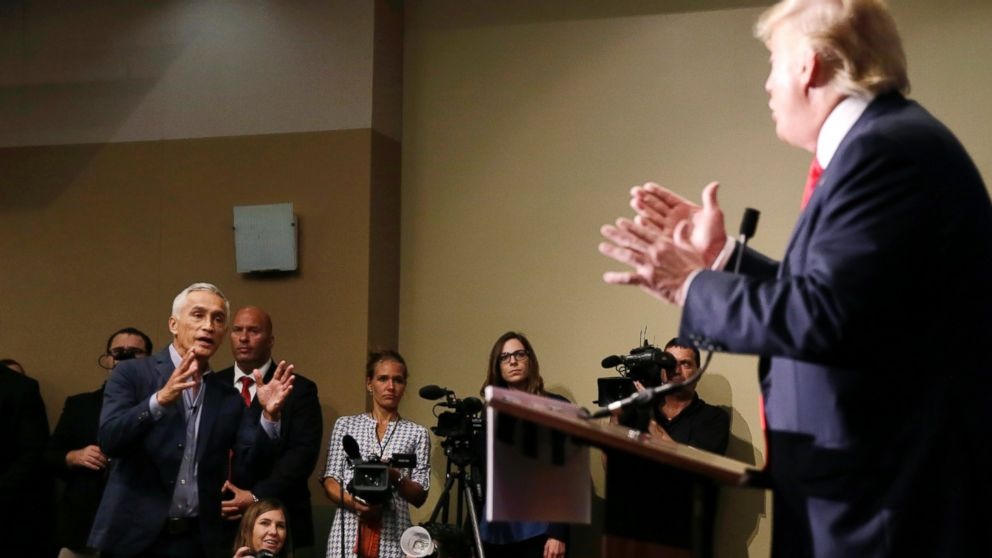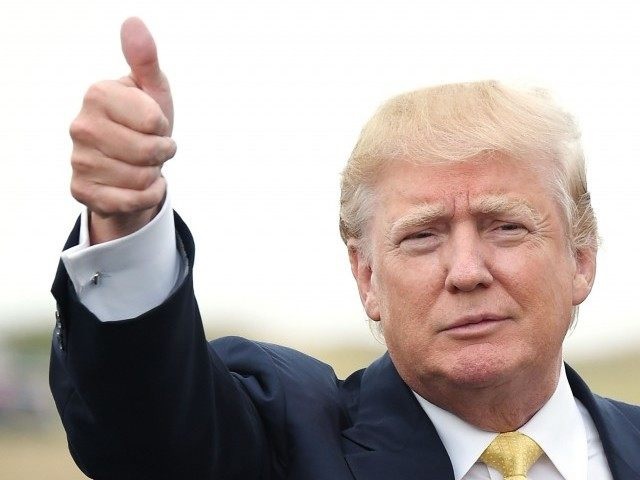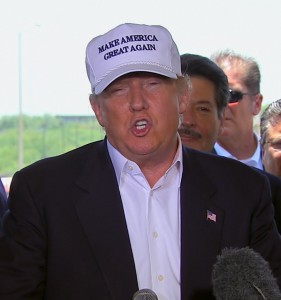Trump Ejects Univision Reporter Jorge Ramos
Donald Trump and Univision have had quite a relationship these past few months. Beginning with the derogatory comments the presidential candidate made about Mexican immigrants, Trump has become the source of various disputes since he announced he is running for the presidency.

Most recently, Trump has found himself the subject of much discussion arising over his on-air argument with Univision anchor and journalist, Jorge Ramos. During an August 26 press conference, immigrant advocate Ramos spoke out of turn attempting to ask Trump about his highly controversial immigration reform plan. Immediately Trump told the journalist to “Sit down. Sit down. Sit down” because he [Ramos] had not been properly called on to speak.
The back-and-forth altercation began with Trump telling Ramos to “Go back to Univision” and led to Ramos being escorted out of the room.
“I knew it was going to be tough,” Ramos admitted during an interview. “I knew… he wasn’t going to like it. But I never expected that instead of answering my questions, he was going to call his security detail to throw me out.”
Ramos recognizes that he had not been called on to ask a question, but after various attempts to schedule an interview with Trump, including sending a handwritten note to the businessman, (which instead of answering, Trump published online with Ramos’ phone number) Ramos believes that even if he had waited his turn to speak, Trump would have never called on him.
“What you want to do in an interview or in a press conference is to unmask, if possible, the person you are talking to,” Ramos notes. “When Donald Trump decided to throw me out, I think he was unmasked. That’s the real Donald Trump.”
Ramos, who is of Mexican origin, expresses that when it comes to human and immigration rights, reporters have to take a stand. He adds that if you don’t challenge authority, especially when it concerns racism and discrimination, then what’s the reason behind being a reporter?
“He tried to stop me when he realized that he didn’t like the question,” Ramos said of his ejection from the press conference, “this is the kind of thing that you see in dictatorships, but not in the United States of America…he acted in an incredibly authoritarian way…And that’s dangerous for press freedom in the United States.”



 As the campaigning and debating continues on the road towards a new presidential era, voters, specifically Hispanic, have formed some favorable and unfavorable opinions about certain candidates.
As the campaigning and debating continues on the road towards a new presidential era, voters, specifically Hispanic, have formed some favorable and unfavorable opinions about certain candidates. Republican presidential candidate Donald Trump claims he will win the Latino vote in 2016 while a new NBC News/Wall Street Journal/Telemundo poll shows otherwise.
Republican presidential candidate Donald Trump claims he will win the Latino vote in 2016 while a new NBC News/Wall Street Journal/Telemundo poll shows otherwise.